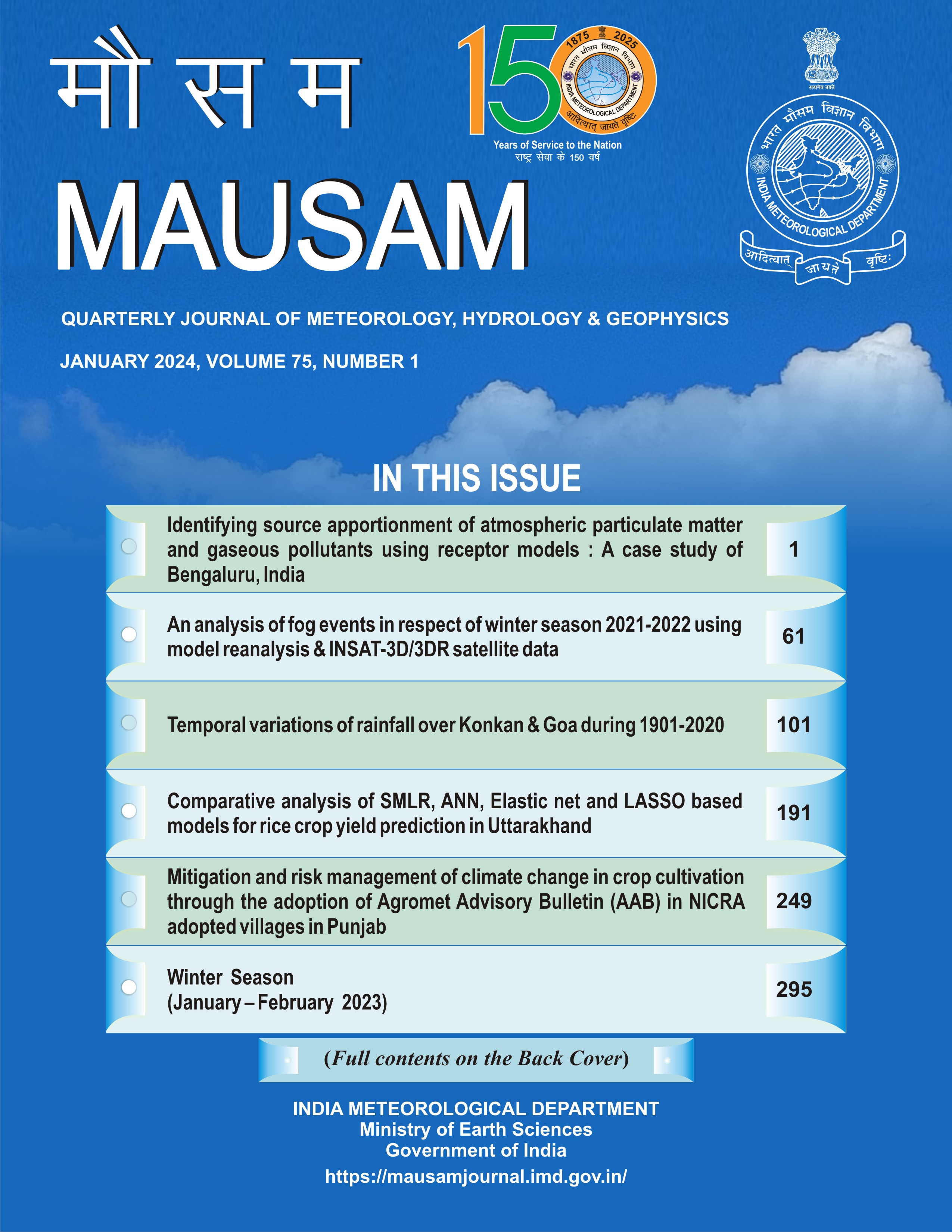Policy Interventions to Address Urban Water Problems of highly urbanised area due to Climate Change
DOI:
https://doi.org/10.54302/mausam.v75i1.5398Keywords:
Water Sensitive Urban Design;rainfall shift; Climate changeAbstract
In this research firstly, the rainfall pattern of Ahmedabad and Surat, the fast-growing urban areas of Gujarat state of India have been studied and compared. It is detected that what makes Surat city more prone to floods. Then, analysis for rainfall shift in Surat over the last three decades has been carried out. It is interesting to observe that the rainfall pattern of Surat is following the local calendar, i.e. Indian calendar rather Gregorian calendar. This relation of rainfall pattern with Indian calendar shows that the prediction and the climatic condition responsible for rain is following the local calendar based on the planetary position. For the Water Sensitive Urban Design, four different wards in Surat Municipal Corporation (SMC) named Adajan, Piplod, Anjana and Pandesara are studied. These wards are selected based on land use, having the highest area in commercial, residential, industrial and institutional in total SMC area. For each ward, the previous and impervious area is calculated, and the runoff is determined. Planning interventions for water sensitive urban design at a building level, street level and ward level have been given for the study area. The study will be definitely helpful for the decision-makers to prepare a policy to follow the local calendar to operate the monsoon protocol and to manage water resource infrastructure, including the planning of harvesting activities.
Downloads
Published
How to Cite
Issue
Section
License
Copyright (c) 2023 MAUSAM

This work is licensed under a Creative Commons Attribution-NonCommercial 4.0 International License.
All articles published by MAUSAM are licensed under the Creative Commons Attribution 4.0 International License. This permits anyone.
Anyone is free:
- To Share - to copy, distribute and transmit the work
- To Remix - to adapt the work.
Under the following conditions:
- Share - copy and redistribute the material in any medium or format
- Adapt - remix, transform, and build upon the material for any purpose, even
commercially.



